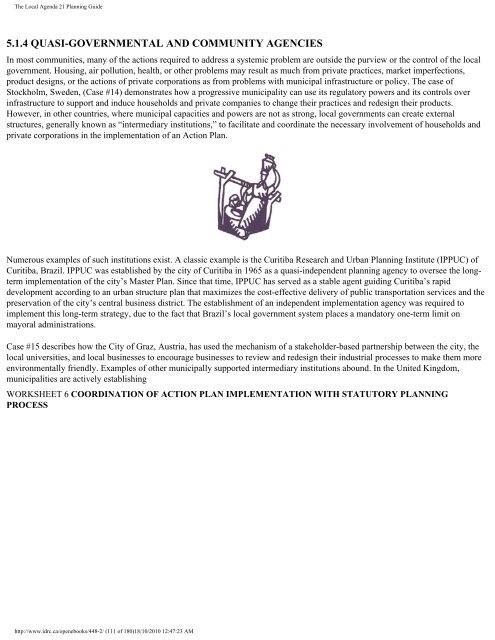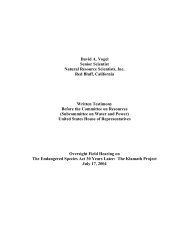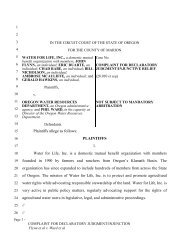The Local Agenda 21 Planning Guide - Democrats Against UN ...
The Local Agenda 21 Planning Guide - Democrats Against UN ...
The Local Agenda 21 Planning Guide - Democrats Against UN ...
You also want an ePaper? Increase the reach of your titles
YUMPU automatically turns print PDFs into web optimized ePapers that Google loves.
<strong>The</strong> <strong>Local</strong> <strong>Agenda</strong> <strong>21</strong> <strong>Planning</strong> <strong>Guide</strong><br />
5.1.4 QUASI-GOVERNMENTAL AND COMM<strong>UN</strong>ITY AGENCIES<br />
In most communities, many of the actions required to address a systemic problem are outside the purview or the control of the local<br />
government. Housing, air pollution, health, or other problems may result as much from private practices, market imperfections,<br />
product designs, or the actions of private corporations as from problems with municipal infrastructure or policy. <strong>The</strong> case of<br />
Stockholm, Sweden, (Case #14) demonstrates how a progressive municipality can use its regulatory powers and its controls over<br />
infrastructure to support and induce households and private companies to change their practices and redesign their products.<br />
However, in other countries, where municipal capacities and powers are not as strong, local governments can create external<br />
structures, generally known as “intermediary institutions,” to facilitate and coordinate the necessary involvement of households and<br />
private corporations in the implementation of an Action Plan.<br />
Numerous examples of such institutions exist. A classic example is the Curitiba Research and Urban <strong>Planning</strong> Institute (IPPUC) of<br />
Curitiba, Brazil. IPPUC was established by the city of Curitiba in 1965 as a quasi-independent planning agency to oversee the longterm<br />
implementation of the city’s Master Plan. Since that time, IPPUC has served as a stable agent guiding Curitiba’s rapid<br />
development according to an urban structure plan that maximizes the cost-effective delivery of public transportation services and the<br />
preservation of the city’s central business district. <strong>The</strong> establishment of an independent implementation agency was required to<br />
implement this long-term strategy, due to the fact that Brazil’s local government system places a mandatory one-term limit on<br />
mayoral administrations.<br />
Case #15 describes how the City of Graz, Austria, has used the mechanism of a stakeholder-based partnership between the city, the<br />
local universities, and local businesses to encourage businesses to review and redesign their industrial processes to make them more<br />
environmentally friendly. Examples of other municipally supported intermediary institutions abound. In the United Kingdom,<br />
municipalities are actively establishing<br />
WORKSHEET 6 COORDINATION OF ACTION PLAN IMPLEMENTATION WITH STATUTORY PLANNING<br />
PROCESS<br />
http://www.idrc.ca/openebooks/448-2/ (111 of 180)18/10/2010 12:47:23 AM










